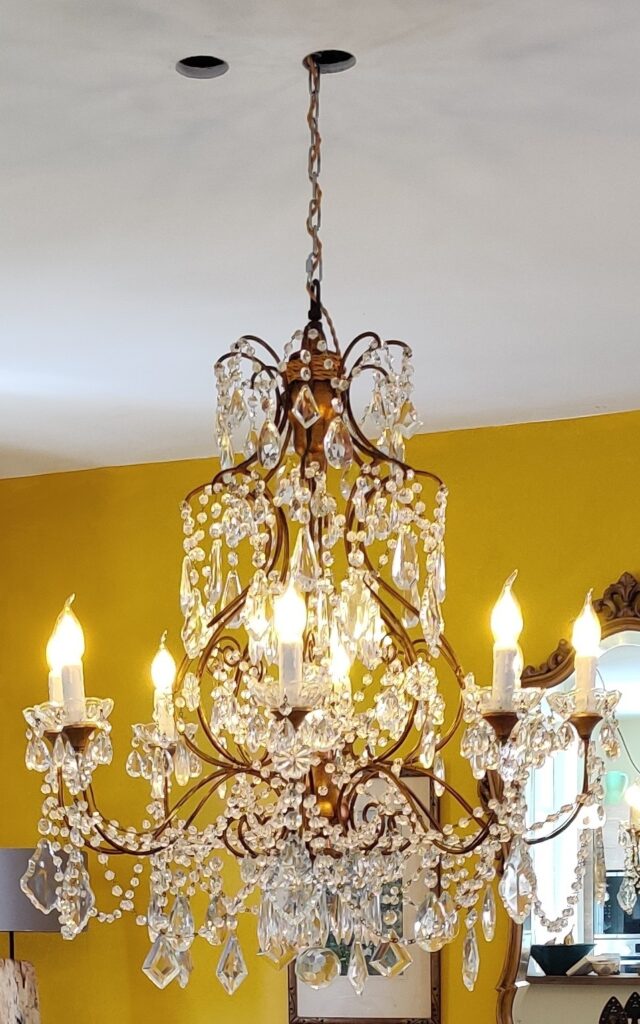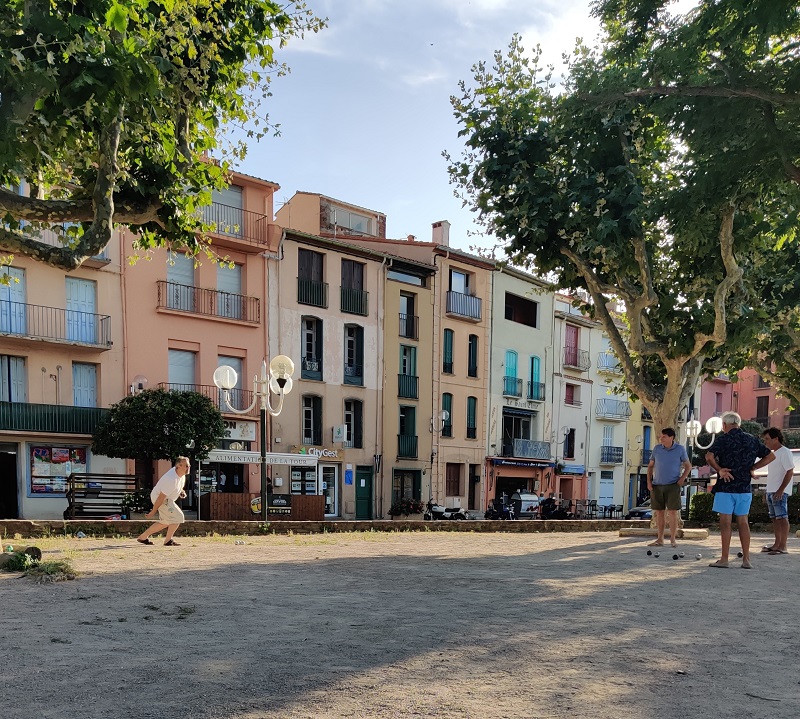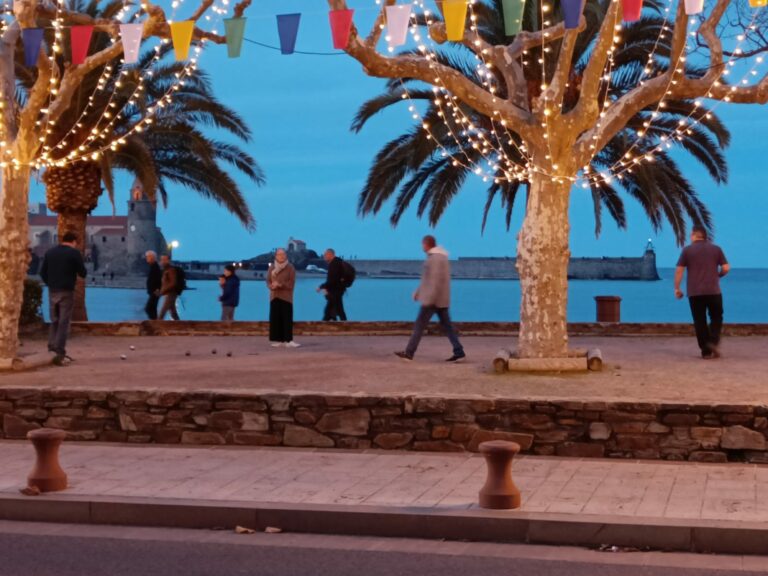This weekend marks our two-year anniversary on the Rue du Soleil. The renovation we began in May of 2020 is still not finished. If Jerrod were writing this, he would want you to know that we’re almost done. It’s not much, he’d say, just a few doors to be replaced, some shutters to be painted and reinstalled. The guest room is finished except for the baseboards. The living room is finished, except for painting the ceiling and one wall. (And also, the baseboards.)
The word for baseboard in French is plinthe, and like most French words, correct pronunciation requires you to sort of give up on the ending. Thus, plinthe is pronounced plaant, that final ‘t’ sound expiring before it reaches your teeth.
I’ve spent the last year or so bitching about how a room isn’t finished without the plaants. That the plaants make the room. That plaants are not just aesthetically pleasing, but they also protect the dry wall and flooring from moisture and debris.
“When are we going to do the plaants? Can we say next week? If I paint the plaants, will you install them before they sit around so long they need another coat of paint?” I can be a whiner, and plaants is indeed the perfect, whiney word.
This is our core renovation disagreement: I believe each job should be completed one at a time. Jerrod believes, as he says, in functionality. If there’s running water and a bucket you can turn over and use as a stool, he’s good. Perhaps you can trace our differing opinions to our families of origin: My father was a meticulous industrial designer who believed God was in the details. Jerrod’s dad is a trial lawyer who believes details are, you know, whatever. Or, as they say in French, n’importe quoi.
I will say that Jerrod did a magnificent job refurbishing a 19th century chandelier we snagged for a hundred Euros. He carefully disassembled le tout lustre, filled the entire dishwasher with the heavy strands of exquisite European crystal, then reassembled it perfectly and restored it to its Edith Wharton-era glory. It is a thing of true beauty.
Nevertheless, after two years, shouldn’t the closet doors be installed? Shouldn’t the holes in the ceiling, caused by various demolition calamities, be patched? Shouldn’t the pile of leftover sheet rock moldering in the corner of the living room be dispatched to the déchetterie?
You may be thinking that instead of being a whiney glass-half full-lady, why don’t I get busy? This is an excellent question. While I have painted many rooms (Jerrod is not a fan of painting), planned and planted a back garden with jasmine, climbing roses, lavender, and canna lilies, taking into consideration the existence of the inexplicable concrete pad, I have not picked up a hammer. The reason for this, although it may just be semantics at this point, is that when we began this mad caper we agreed on a certain division of labor. I make the money and, to help save some of that money, Jerrod is tasked with employing his many mad skillz on the renovation. I’d naively assumed this would all be completed in human, not geologic, time.
But Jerrod has fully assimilated into life on the rue, embracing the same philosophy of the construction team who did the initial work two years ago. For a few heady months after we moved in, the team showed up five minutes early four days a week, booted up the Global Construction Worker playlist (“Live and Let Die” on heavy rotation), and proceeded to work though lunch. They tore out the existing walls. They tossed up new ones. They wired. They plumbed. Then, they got a bigger job with a bigger initial outlay of cash and disappeared. (Another column for another time.)
Jerrod hasn’t disappeared, but he’s also found better things to do. He’s become a middle-aged American man-socialite, a modern-day Fitzgerald, minus the writing (that’s my job). During long weekends, vacations and the high season, which we’re coming into now, Jerrod’s new French friends return to Collioure. Marc comes from Paris. Gérard comes from Toulouse. Jean-Pierre comes from Corrèze. The boys are back in town!
Now Jerrod’s days are packed with long lunches that segue into intense late afternoon games of Pétanque, followed by a leisurely apéro that slides effortlessly into dinner. The weeks are punctuated by motorcycle rides through the Pyrenees to a secret, excellent mountain restaurant that serves Catalan-style snails, and emergency fix-it jobs that demand he appear with his tool kit and bad French, to charm yet another person with a leaky sink or a new IKEA bookcase whose assemblage is beyond them.
Last summer, in the space of a few weeks, Jerrod fixed a dozen computers, saved the life of Gérard’s wife (she was choking on a sesame bread stick), helped Jean-Pierre haul a new sofa up to his third-floor apartment using his rock-climbing gear, and became locally famous for his not-too-spicy guacamole.
So popular is my husband with every Tom, Dick, and Harry, or, should I say, Jean-Marc, Pascal, and Pierre, not to mention old Madame Barbeau at the end of the rue, I now have to get on his calendar. The irony is that I’m the keeper of our calendar. I need to put him on our calendar for myself, which is the scheduling version of trying to tickle yourself — it makes no sense.
Two weeks ago, we had a conversation that went like this:
Me: The new door we ordered for upstairs was delivered yesterday. Do you think you could install it this weekend?
Jerrod: Do I have anything going on Saturday?
Me: You mentioned helping Marc change one of his motorcycle tires, then riding to Spain to that place we got the good olive oil that time.
Jerrod: Right, and Gérard wants me to make my guacamole for the apéro.
Me: Comme tu veux. (Another phase meaning, basically, whatever; it also means “as you wish” and “suit yourself,” but underneath that there’s a sprinkle of “go fuck yourself,” not dissimilar from the pinch of Cayenne in his incomparable guac.)
I actually learned this phrase, and how to employ it, from my new friend on the rue, C. C. is married to one of Jerrod’s copains, or pals, if you will. I will only use her initial, because like all extremely cool French women, C. is reticent, and private. She is tall, with shoulder-length blond hair, and stylish in that low-key French way. (Jeans, white shirts, cunning ballet flats.) C. loves to discuss language, and is a great reader of the French classics. She’s possibly the last living fan of Stendhal. When I gave C. a copy of a book I wrote, she tackled it immediately, with the intention of further improving her English.
C. also has a devastating wit. There’s a French phase that means “on another note,” used during conversation when you want to change the subject, usually somewhat abruptly. Passer du coq à l’âne literally means “passing from the rooster to the donkey.” When Jerrod and I get together with C. and her husband, a fellow motorcycle fanatic, the subject always keeps coming back to motorcycles. C. then rolls her eyes and quips, passer du coq à moto, or passing from the rooster to. . . the motorcycle.
It was C. who trained me on how and when to deploy a perfect comme tu veux, which is always delivered with raised eyebrows, and little shrug. Two days after the apéro at Gérard’s, the one where Jerrod brought a bowl of his famous not-too-spicy guacamole, I came home from a swim to find a row of newly painted plinthes balancing on a pair of sawhorses, patiently waiting in the court yard.
Hopefully, they won’t still be there when our first set of summer guests arrives next week. On verra, or, we’ll see. But, I guess, if they’re out there too long, I’ll text C. and ask for her advice on what phrase will get them installed inside. There’s got to be some powerful French phrase, delivered with the right attitude of vague disapproval that will get the job done.
Karen Karbo is a frequent contributor to Frenchly. Her 2021 essay, Au Revoir Thanksgiving was the germ for this column. Karen is the author of fourteen award-winning novels and works of non-fiction including the international bestseller, The Gospel According to Coco Chanel. Her essays, articles and reviews have appeared in Elle, Vogue, O., The New York Times, Tin House, Salon, Slate and elsewhere. To connect with her, buy her books, and learn about her writer’s retreat in Collioure, please visit her website here.
Photo credits, Karen Karbo.






